From Church Leaders
[Source - Revd Helen Van Koevering - December 2013]
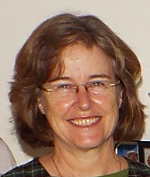
The story begins back in 1898. In the middle of Lake Malawi (Lake Niassa for Mozambicans) is the small island of Likoma with the once largest cathedral in sub-Saharan Africa built by the UMCA missionaries who had come at Livingstone’s request thirty years before to evangelize and rid the region of slavery. Here, on 6 March 1898, was ordained the first Mozambican priest, Yohanna Barnabé Abdullah.
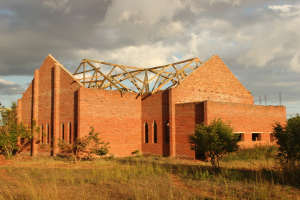
Yohanna was from the Yao tribe of the plateau above the Lake. The Yao converted en masse to Islam in the mid 19th century to protect themselves from the Arab slave trade which threatened the Nyanjas of the Lakeshore. After a brief time in Zanzibar island, the heart of the slave trade on the East African coast, Yohanna served most of his ministry in Unangu back on the plateau, but visited Jerusalem in 1905, studied extensively (mastering Greek and Hebrew, they say), and wrote ‘Chikala cha WaYao’ about his people and their language, published in 1919.
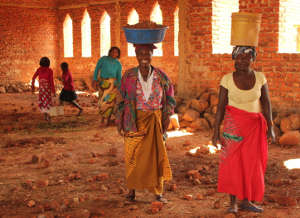
The Yao plateau connects the story of Yohanna with the development of Lichinga town as a Portuguese army base in the 1960s. With Independence in 1975, the town became the provincial capital of Niassa, famously described in 1990 by a Time magazine reporter as ‘not the end of the world, but you can see it from there!’ In those days, the town resembled a Wild West, windswept town, lost in a forgotten province at the furthest end of the country from Maputo, the capital. The last decade has seen considerable growth of the town from around 30,000 to now about 150,000 inhabitants, with continual peace since 1992 and forestry spurring the growth.
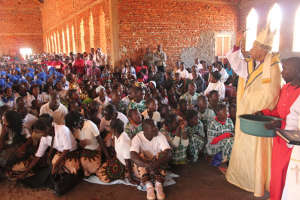
Even though the Anglican Cathedral of St Bartholomew is still on the remote Lakeshore, the Anglican Diocese of Niassa relocated to Lichinga in the late 1980s. The Bishop’s house and offices are now based in the development and conference centre of Kuchijinji, a Yao name meaning ‘a place where people gather’. On 21 July this year, an 18 year old dream to have a church as a central focus for the town’s dozen or so small Anglican churches, and a proto-cathedral close to the diocesan bishop, came to pass. Yohanna Abdullah church, already with a worshipping community of about 1,500 adults and with services in Yao, Nyanja and Portuguese, was opened by the Diocesan Bishop, Rt Revd Mark Van Koevering, and the Dean of the Province of Southern Africa, Rt Revd Rubin Philip.
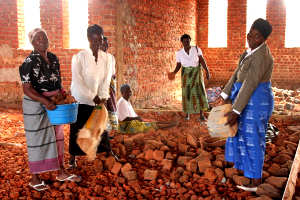
This church, being the realization of a long-held dream, has quickly become an icon of God’s patience and care, gift and blessing. The ones who remain from the first days of the dream were the ones closest to the altar at the service of inauguration, the most emotional to walk the aisle that day, the most silent through it all. Nearly 200 children sit on mats every Sunday here, the grandchildren for whom everyone had kept saying this church would be. And more than 110 Mothers Union members glow with pride on their side of the church for the sacrificial effort of this community to build their church. Yes, professional builders and roofers were taken on, with funding from various churches in Durban and London linked with the Diocese of Niassa, but the rest has been the labour of love and giving of the congregation. Everyone has carried bricks to lay the floor, prepared food for the workers, carried water, hauled earth; the catechist and verger have been the principal brickies, voluntarily supervised by a builder in the congregation; and local Mozambican building companies have donated materials, encouraged by the community participation, confidence and potential. When the floor was finally laid, the event was celebrated with a confirmation for 190 young people from the two parishes of Lichinga, and young and old took their shoes off to dance on the smooth, cooling, clean cement floor!
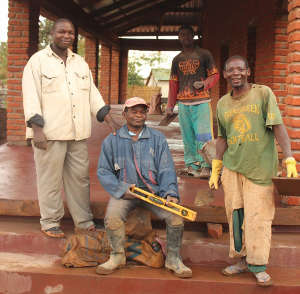
As the parish priest, I know the work, the headaches, the struggle that has been part of all this building very well, but am also in awe of the growing community commitment to do this and to thank God for it all. I have seen days when more than 100 have worked here together, contributing food, singing when the effort has slackened, urging others to join in; I have seen the three different youth choirs practice more, learn new songs and dances, enjoy the new place (with no instruments, harmonized vocals are so much clearer and louder in a bricked and floored building!). I have seen the giving of many individuals increase beyond their own belief – one woman told her bishop that they have learnt that they have more than they realized, more to give than they had ever imagined – and she wasn’t just talking about money!
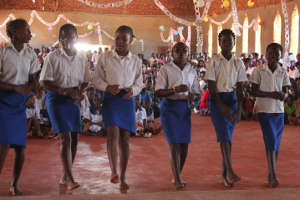
In this church, I also see a concrete example of our diocesan vision to ‘be a communion of communities transformed in Christ Jesus’. Around the diocese, in both mission and ministry, we have been learning together how to be Christian community where we are - and the ‘where we are’ has been a moving target in the last ten years as we have seen a historical, people-led church planting movement happen, doubling our church to 430 congregations now. There have been many failures and backward steps, but the vision has slowly grown. Training and ordaining 25 ‘Community priests’ (including the first two Mozambican ordained women) – experienced, community supported, mature local church leaders - over the last decade has supported our remote yet growing, traditionally High church congregations in their sacramental worship. The Mother’s Union, which has trebled in this same time to 3000 members, takes their pastoral role seriously, and new congregations are strengthened by their presence and prayers. Focusing on small groups, a Bible reading method based on ‘lectio divina’ and ‘Seven Steps’ was rolled out through all the churches and groups, a method which allows for the fact of very low literacy and few Bibles. In this rural diocese, there are places were illiteracy is still more than 50%, Bibles in Portuguese are limited and expensive for largely subsistence farmers, and local language Bibles almost non-existent (the Yao Bible is expected to be ready for print by 2015, I’m told). The small group was then further encouraged with a discipleship programme written for Africa, especially post-conflict, rural places, called ‘Rooted in Jesus’, and with voluntary ‘Equipas da Vida’ in congregations who got involved with development issues in their communities. The focus is development through the lens of health, having initiated with teaching on HIV/AIDS, and mobilizing communities to find their own solutions. The teams have been involved in supporting orphans in community, nutrition, farming methods, sanitation and clean water wells. Around 30 ‘adeptos’ (cheer-leaders, rather than facilitators or leaders) encourage these 220 or so teams in now half of our churches. Through multiplying out the teaching and caring into communities, we estimate that several thousand orphans are mentored and cared for, around 3000 volunteers are mobilized in Equipas da Vida, and possibly 30,000 people in northern Mozambique are being reached. As a visiting social worker once said, this was the work of changing the fabric of society. As a visiting bishop once said, this is God transforming a church to transform a nation. To God be all the glory.
Yohanna Abdullah church is doing their own thing in their community. Building a church of this size would only be possible with community participation, sacrifice – and lots of good humour! So much more to be done – the windows and plastering are next – but we are already talking about a community building in the place of our old cane church next for literacy and health classes, preschool and pregnant teenagers support, after-school and Bible teaching for all ages. We have already started on a well at our entrance, with great significance to us because of Jesus meeting the Samaritan woman at the well, the river of life we are promised, and the water we need daily in our community. The skilled and financial resources are greatly restricted, but the community is strong, keen, full of faith, building our community. And that’s what it’s all about!
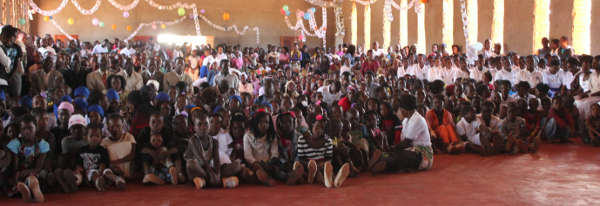
Helen Van Koevering: Lichinga, 3/12/2013